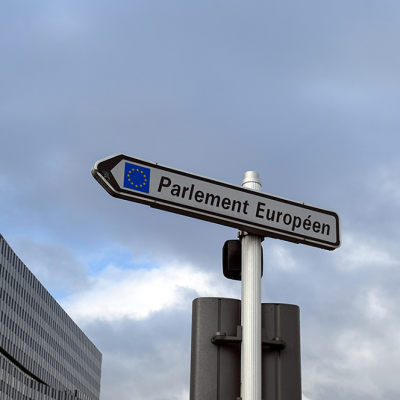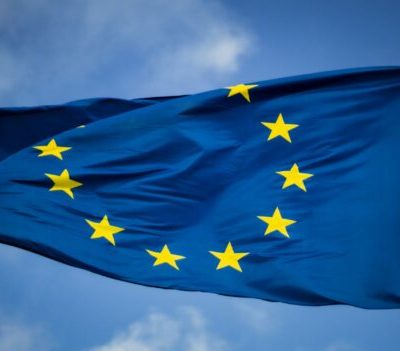[FR] The institutional crisis in the EU… What do the new Member States think about it?
Seminar organised by Notre Europe in Paris on 9 December 2005 in collaboration with the Association France Pologne pour l’Europe, the Europeum, the Warsaw Institute for Public Affairs, Providus and Euractiv.fr.

Since the end of communism (1989-1991), the former Eastern European countries (Poland, the Czech Republic, Slovakia, Hungary, Slovenia, Latvia, Lithuania and Estonia) have been involved in the process of European integration with a view to joining the EU. They have thus become players in the socialisation of Europe. The EU has enabled them to gradually open up to the single market and, thanks to aid received under programmes such as PHARE, to upgrade their legal systems and modernise their administrations. At the same time, these countries have become involved in the debates on European identity, values and citizenship. The negotiations on the acquis communautaire, like the work of the Convention on the Future of Europe, in which they were fully involved, meant that issues that were initially ideological, abstract and external, such as “returning to Europe”, became concrete and increasingly internalised by each country. For them, this was the “domestication” of Europe. All these moments were decisive for the community learning of the various actors in Central Europe and for their integration into the European game.
Some complained, rightly, about the asymmetry of the process. This was all the more painful as these countries had just freed themselves from a dominant power, the Soviet Union, which had deprived them of their right to self-determination. Moreover, Eurosceptics, Euro-realists and other anti-Europeans, who are very active on the political scene in Central Europe, still resort to comparisons between the EU and the USSR, arguing that, like the latter, the EU is demanding that new members voluntarily give up certain attributes of sovereignty that they have only recently regained.
On both sides, this process of mutual recognition is far from complete. This is particularly evident among former EU members, with the symbolic blunders surrounding the spectre of the ‘Polish plumber’ during the recent referendum campaign in France. This blunder is only the tip of the iceberg of a real semantic problem.
European politicians must learn that the misuse of symbols has consequences. This applies not only to demagogues, for whom it is a routine political weapon, but all too often to convinced Europeans as well. It is true that in the new Member States, but also in those that have been part of the EU for longer, there is a real sense that Europe lacks an identity.
In such a situation, the weight of words is crucial. The carelessness with which politicians use metaphorical bricolage is just one example among many. It is difficult to gauge the damage caused by metaphors borrowed from geometry (‘circles’), thermodynamics (‘burning of the hard core’) or transport economics (“roads” and ‘motorways’). For Eastern Europeans, this is seen as an attempt to distinguish between two categories of European citizens: first-class and second-class citizens.
This same sensitivity on the part of the new Member States was evident on 1 May 2004 in another semantic dispute: was it the enlargement of the EU or the reunification of Europe, as Vaclav Havel and Bronislaw Geremek claimed? For the latter, words were very important. That is why they preferred to talk about ‘reunification’, as if to emphasise that their countries had never ceased to be European, despite the division of 1945. The same importance of words was evident in the debate on the axiological, and in particular religious, roots of the Preamble to the Treaty. It is no coincidence that Poland, the country of Pope John Paul II, made this an important issue for its national identity.
Since the accession of the eight post-communist countries to the EU in May 2004, the relationship with the EU has changed profoundly. Despite fears and massive abstention, the vote in favour of accession was won by a large majority. However, Central European leaders such as B. Geremek stressed that ‘the lack of enthusiasm of the candidate countries is merely a reflection of the lack of enthusiasm of the Fifteen’.
The asymmetrical situation between these countries and the EU institutions, as well as between them and the old Member States, has evolved towards a symmetrical relationship since their accession as full members. Accession has created new challenges for the administrations and political actors in these countries, moving from a rather passive acceptance of the acquis communautaire before enlargement to an active contribution to the definition of Community policies and to negotiations within the European institutions.
Their political weight on the European stage was also evident recently in the compromise on the financial perspectives. However, there are still transition periods which restrict the rights of these countries in a few areas, such as access to the labour market.
The countries of Central Europe were also very active during the debate on the text of the Constitutional Treaty, both before and after enlargement (2002-2005). In addition to sending full and representative delegations to the Convention on the Future of Europe, these countries exerted considerable influence right up to the Intergovernmental Conference that finalised the text. On that occasion, each of these countries reflected interesting divisions between supporters and opponents of further integration, with discussions that were then taken up by forums and the media. This explains why, within these countries, awareness of the issues at stake was sometimes greater than in the old Member States. The strategies adopted by these countries during the Convention debates were diverse and there was almost no reflex to form pressure groups based on the former Soviet bloc. Instead, other divisions came to the fore: between large and small countries, between former member states in the Mitteleuropa region, between the Visegrad Four countries, etc.
After the failure of the referendums in France and Denmark, the debate on the ‘constitutional’ future of the European Union was ‘frozen’ and deactivated. Some of the new members, such as Hungary, Lithuania, Slovenia, Slovakia and Latvia, which opted for the parliamentary route, ratified it between December 2004 and June 2005. Poland and, above all, the Czech Republic, which opted for a referendum, seemed relieved to be able to postpone the decision on the date of the vote, thanks to the failure of the referendums in France and the Netherlands. Indeed, it seems that this debate is no longer a priority at government level, with all information campaigns on the text of the treaty having ceased as if by magic.
The crisis caused by the rejection of the constitutional text, but more generally what appears to some new Member States to be a crisis of ‘European governance’, does not radically call into question the European project. However, the perception of the symptoms of this crisis differs between old and new Member States. For example, the lack of a solution to the conflict surrounding the directive on the liberalisation of services, which most new members, who are inherently more liberal, have endorsed, is disrupting mutual understanding. These countries also do not understand the various restrictions on the free movement of labour, nor the debate on the harmful effects of relocation. The recent obstacles to the adoption of the 2007-2013 budget for 2007-2013 were also seen as a major breach of the principle of European solidarity. It goes without saying that the ‘Euro crisis’ is reflected in internal party debates in each country, adding fuel to the fire of Eurosceptics (‘Euro-realists’ as they like to call themselves in the Czech Republic). However, even for these centrifugal tendencies, it has become urgent to change tactics, moving from the status of European outsider to that of insider. Their participation in the European Parliament elections in June 2004 is evidence of this.
The European situation has changed completely since 1 May 2004. Despite the crisis of ‘European governance’ that is indirectly the result, the new member countries and their elites have not given up on Europe. As a Polish analyst said after the French rejection of the treaty text: “This vote is good news for Europe: a political Europe with a different definition will emerge in any case. A Europe whose guidelines will be set by societies, not technocrats.” If we strip away a hint of demagoguery from this opinion, the message remains strong. To win the next attempt at constitutionalising the EU, which will deepen the mechanisms of integration, European citizens will need to be more involved in this issue.




